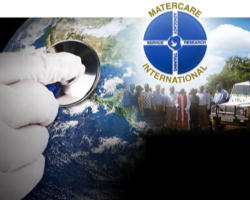“Pick up the pieces lest they be wasted” (Jn 6:12).
How much these words tear at the heart strings. How can we find the pieces of the babies? Where can we go to collect the pieces of the babies who have been aborted so that they are not lost?
We know that the aborted babies are now in the company of the angels and saints and entrusted to the loving household of God however, where are the “pieces.”
God so honoured the human body that He sent His only son Jesus to take on a body of flesh so of course the body must be of great value. We speak of the Resurrection of the Body and this mystery remains so. We cannot know deeply the mystery and we entrust this to the Lord as we entrust to Him the pieces so that they are not lost.
In the loss of “pieces” motherhood has been wounded and seeks, years to know that which has been lost to her she has not known what the loss of the pieces would have meant to her and her motherhood and the dignity inherent in that which she has allowed to be lost. Fatherhood has also damaged through the abortion and those pieces “lost” because the man/father did not protect the child and allowed the pieces to be wasted.
| The loss of a child through abortion means that what we were given “precious pieces” introduces a kind of mourning which is haunting because it is the life a child whose ‘pieces” cannot make a history and whose history remains incomplete and like a bud unopened. The ecstasy of God for this child remains unfulfilled. The visions of seeing the future of the child fulfil its mandate of growing, laughing, creating, and begetting has been humanly lost. Dreaming dreams of futures yet to unfold the “pieces” echo and are lost in a single intentional act of violence which broke the child into pieces and scattered them as “waste.” We dream of sharing our lives with our child, and of giving him or her all that we have to give. These are very ordinary dreams, shared by parents around the world. These visions, these dreams give our life its raison d’être, its meaning, and purpose, which cannot ever be replaced. To realise that these dreams were wantonly disposed in a moment of panic and terror or even anguish or disinterest is terrible because it means the loss of what these dreams might have meant. What these dreams attached to the child would have meant both for the child, the family and humanity. A doorway and space is opened into our lives which will never be filled or closed, and speaks of an unspeakable grief for the “lost pieces” It has been said that mourning a child who never was or was even a potential or was even imaginary is of no use; however, this can never be because the breath of God is not potential breath or even imaginary. This breath breathed a new life designed in His own image which was meant to be, but was not. It is said that in the mourning for an aborted infant or even miscarried infant we are mourning for something which never existed, but this cannot be true because in the mourning we remember them in their entirety, and they do exist and do not pass by unnoticed. In the mourning we remember the loss of our opportunity to dream the dream of parents. The dreams of what might have been for our child. We mourn the “pieces lost”. For womanhood and motherhood what is important is not the life your son or daughter did not lead, but the life that he did lead and the changes that that life have wrought. The “pieces” were not “wasted” but regathered into beautiful image. Into a beautiful whole. Mother…..Whether we live an hour, or a hundred years, we all live a lifetime. What makes one lifetime better than another is the beautiful word anamnesis, a past event made present real and continuous. The life of your child is forever an event, it is forever made present, it is forever made real and it is forever continuous because those pieces are cells filled with love only and love never dies or is lost. In the end, what matters is not how long we live, but how well we live. And we never live so beautifully, or so perfectly, as when we are infants and we venture to give glory to God for the aborted infants. We refuse to believe that those lives are destroyed forever or the “pieces lost” Throughout his life, your son experienced every moment fully, undistracted by thoughts of the future or memories of the past. He never knew fear, or doubt, or guilt, or shame, or worry. He accepted love. He did not suspect that he was not really worth loving, or feel guilty for being loved. He did not feel that being loved put him under an obligation. He did not fear that you would cease to love him. He simply accepted your love, and that completed him. He lived as perfectly as only a baby can. He was, always, everything that he could be, that he was called to be, that he was destined to be. Very few of us can say that of our own lives. And you, mother, gave him that. Your loss is crushing, and your displacement of the “pieces” are an immolation, but the dream that has been taken from you, or you surrendered, is a lesser thing than the reality that you have freely given “life” and a body for eternal life. For a while not in “pieces” but whole and which will be whole again in eternity. A complete life, a life filled with eternal love, a life free of fear, a life of beauty. “Woman” you helped to create your baby’s life. You shared it with him, and you filled it with thoughts of eternity. You have been a part of a life that, though brief, was completely perfect. And that is a joy you will still feel deeply when time has rubbed smooth the stones of your grief. This is what Ivan Bozmormenyi-Nagy (1983) who introduced in the concept of “invisible loyalty.” meant. A lifetime loyalty. Your loyalty, woman/mother of the aborted child, will always remain firmly attached to your child. By remembering “the pieces” and not leaving any behind Adam speaks the “word” of God and urges its remembrance. In the remembering of the existence and speaking to its reality, dignity is conferred on this new creation even if its existence was short. It’s claimed by God by virtue of its being called “human” It’s named via Adam at God’s request (Gen.2:19). To name is to “begat” to give that creation a connection. To name is to say that it is my son or daughter. He breathed upon him which means to receive the breath of God is to be identified with the Creator and being identified with the Creator not “one piece is lost.” . Anne Lastman |









